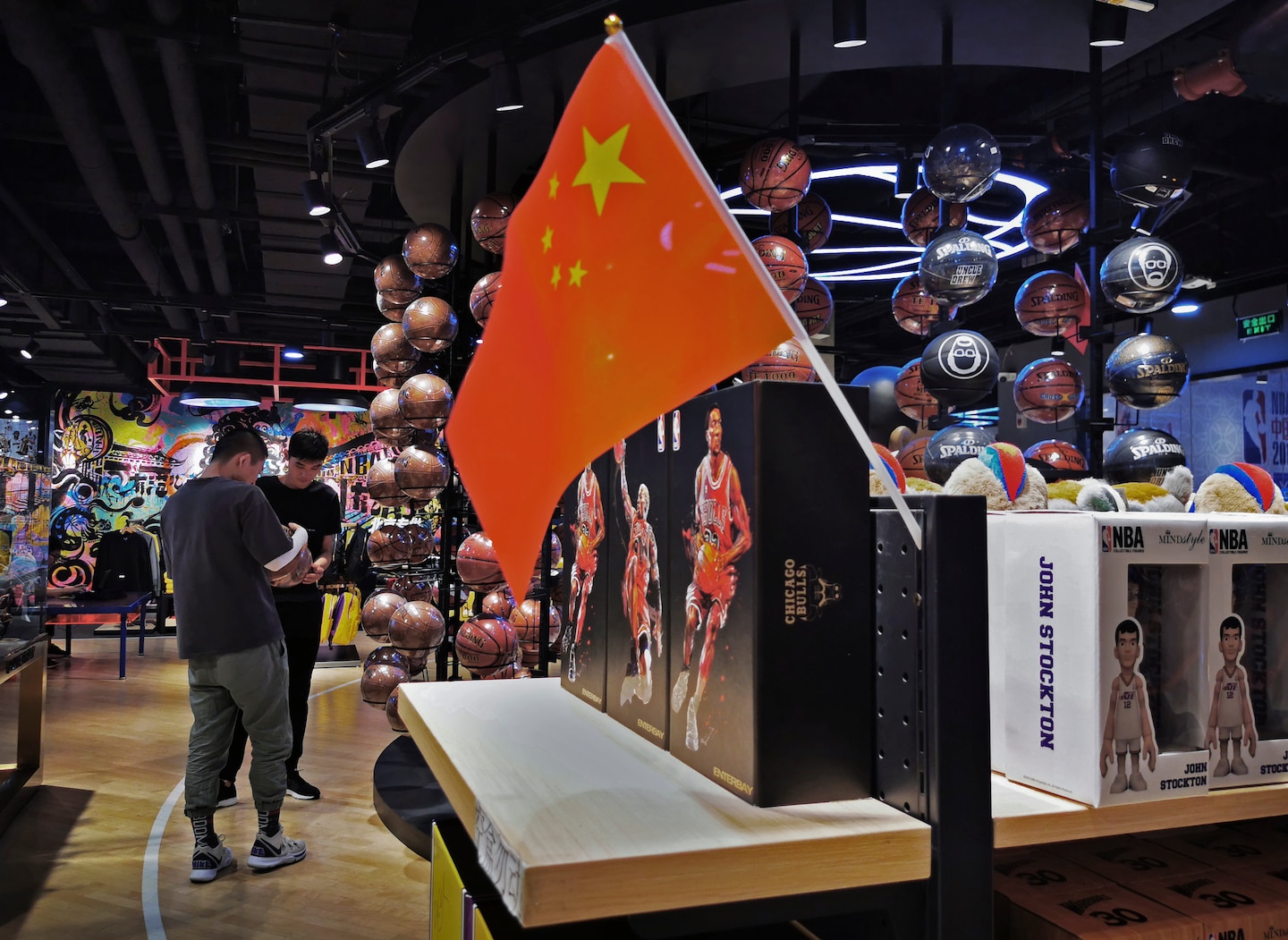NBA answers to pressure from U.S. senators regarding league’s relationship with China

A 2019 report by the State Department alleged that, by its estimate, the Chinese government “detained more than one million Uighurs, ethnic Kazakhs, Hui, and members of other Muslim groups, as well as some Uighur Christians, in specially built internment camps or converted detention facilities in Xinjiang and subjected them to forced disappearance, political indoctrination, torture, psychological and physical … abuse, including forced sterilization and sexual abuse, forced labor, and prolonged detention without trial because of their religion and ethnicity.”
Late last month, Blackburn sent a letter to NBA Commissioner Adam Silver in which she posed questions about the league’s relationship with China, which she described as a “threat” to “democracy and freedom worldwide.” In addition to seeking clarification on the academy in Xinjiang, Blackburn asked about the financial fallout from the ban on NBA games imposed last year by Chinese state TV, following a since-deleted tweet by Houston Rockets General Manager Daryl Morey that supported protesters in Hong Kong, and about “the scope of the NBA’s relationship with Chinese state-owned enterprise Alibaba.”
In his reply, Tatum estimated the loss in revenue from not having games on Chinese TV to be “in the hundreds of millions of dollars,” and he said the NBA’s primary contractual relationship with Alibaba is for the distribution of content across the company’s digital platforms in China. Tatum noted that Alibaba chairman Joe Tsai owns the Brooklyn Nets, and he asked that Blackburn bear in mind that Alibaba is “listed on the New York Stock Exchange and Hong Kong Stock Exchange, and most shares are held by institutional investors.”
A spokesman for Alibaba addressed Blackburn’s description of the company in telling The Washington Post that it is not state-owned but owned by public shareholders.
Tatum also wrote in his letter that some of the statements Blackburn made in her letter, before posing her questions, were “inaccurate.” He did not specify what the inaccuracies may have been, but Blackburn had written to the league: “The actions of the NBA and some players have created an appearance that your league prioritizes profit over principle. This accusation may be inaccurate; however, I urge you to give it careful thought.”
The NBA garnered widespread criticism last year from Democratic and Republican politicians for its handling of China’s vehement reaction to Morey’s tweet. Silver said at the time that the league’s tepid initial statement about the furor was “misinterpreted,” and he claimed the NBA told China there was “no chance” the league would acquiesce to a demand that it fire Morey.
The renewed scrutiny of the NBA’s relationship with China comes at a time when the United States is broadening sanctions while accusing that country of pressing Uighurs and other minority groups into forced-labor camps that produce, among other things, sports apparel for Nike, which in turn outfits the NBA. As with the Morey episode, the league is again receiving accusations of hypocrisy for taking strong stands on domestic social issues but turning a blind eye, as some see it, to abuses committed by China to maintain access to its lucrative market.
“Uighur concentration camps help make those Nike uniforms that the NBA wears,” Missouri Sen. Josh Hawley (R) said Tuesday on Fox News. “They should pledge right now — Nike, the NBA, and all these American corporations — that they will not use forced slave labor.”
Hawley sent a letter to Silver earlier this month in which the senator asked if the NBA, which has “Black Lives Matter” painted on courts and is allowing players to put messages related to social justice on their uniforms for its pandemic-delayed restart, would also allow messages of support for “victims of the Chinese Communist Party,” as well as for law enforcement and the United States military.
“If a player chooses to display a message of support for victims of the Chinese Communist Party on their jersey,” Hawley asked, “will the NBA allow the player to wear their jersey or will it censor that player in order to avoid drawing Beijing’s ire?”
Nike stated in March that it does not source products from Xinjiang and that it “confirmed with our contract suppliers that they are not using textiles or spun yarn from the region.”
Blackburn said Wednesday in a news release that while the NBA’s “continued financial relationship with Alibaba requires a closer look,” she was pleased with its decision to “abandon its footprint in Xinjiang.” She added that it was “the right way to condemn Chinese oppression and should motivate other American corporations to decry such atrocities.”
However, Blackburn, who noted in her news release that her letter had been specifically directed to Silver, struck a different tone in a subsequent statement that was provided to The Washington Post after first being published by Sports Illustrated.
“It is inconceivable and disrespectful for Commissioner Silver to sidestep an issue that requires real leadership,” the Tennessee senator said. “The reply from Deputy Commissioner and Chief Operating Officer Mark Tatum lacks the appropriate concern and responsibility that should accompany congressional correspondence.
“These technical answers do not address the larger questions about whether there is a conflict between their financial decisions and professed values. It fails to even acknowledge the gross human rights abuses that are taking place in China daily. I will continue my inquiries into questions about the Uighurs and the NBA’s corporate partnerships at the appropriate organizational leadership levels.”
The academy in Xinjiang was founded by the NBA in 2016, at the same time it established similar ventures in the Chinese provinces of Shandong and Zhejiang. The latter two are still operational, and the NBA is also running academies in Australia, India, Mexico and Senegal.
In a statement Wednesday on the Xinjiang academy, NBA spokesman Mike Bass said: “We hosted our last clinic there last spring and ended our involvement. The NBA Academy program is not-for-profit and aims to provide high-level basketball training to young people of different backgrounds.”
Read more:






